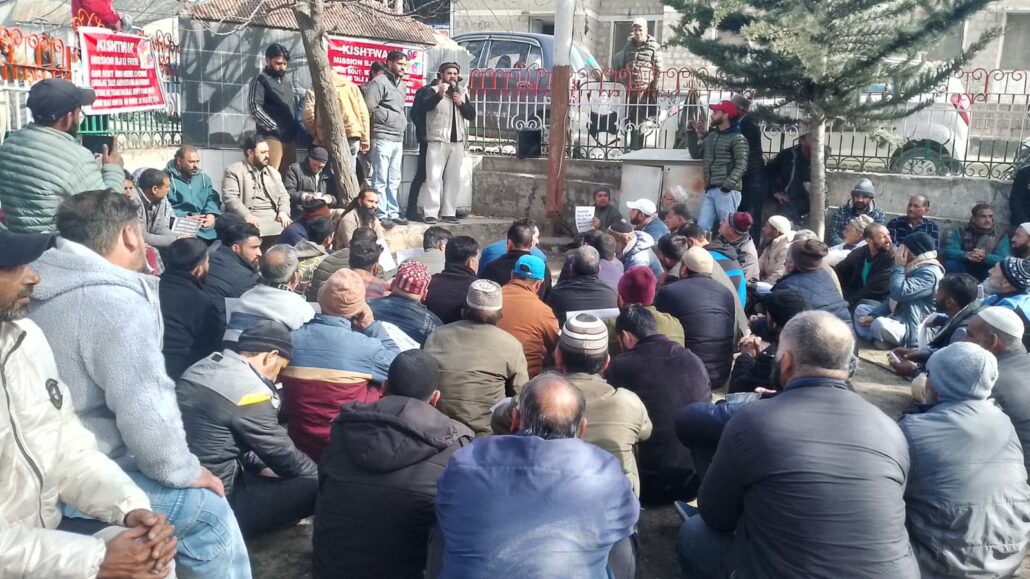
Kishtwar, home to several major hydroelectric projects, has become the center of the Mission Bijli Free movement, as residents demand free electricity in a district that produces thousands of megawatts of power.
On February 9, a large protest erupted at Kishtwar’s Chowgan Ground, with demonstrators chanting slogans like “Hamari bijli humko do, muft do, muft do,”
On Monday, the district administration imposed Section 144 of the Bharatiya Nyaya Sanhita (BNSS), prohibiting gatherings of five or more people.
Citing concerns over public order and upcoming religious festivals, the administration warned that violators would face legal action under Section 223 of the BNSS.
However, locals see this as an attempt to silence their rightful demands rather than address them.
For years, Kishtwar residents have borne the brunt of large-scale hydroelectric projects like Pakal Dul, Kiru, and Kwar, which collectively generate thousands of megawatts for the national grid.
Despite this, the region continues to face long and unscheduled power cuts while electricity tariffs have surged. In October 2022, Jammu and Kashmir saw a 17% hike in power tariffs, followed by another 15% increase in 2023-24 for metered consumers.
Unmetered households, particularly in Kashmir, faced an even steeper 30% hike in mid-2024, with the administration blaming low metering rates.
Shabir Ahmed, a shopkeeper in Kishtwar, expressed his frustration, pointing to the irony of the situation.
“We produce electricity for the country, yet our homes remain in darkness. When power lines from our district can light up cities hundreds of kilometers away, why are we forced to pay such high bills and suffer power cuts?”
This sense of injustice has fueled the movement, drawing support from various sections of society, including students, traders, and political figures.
Shabbir Ali, a university student, questioned the logic behind the continued suffering of locals. “Our land, our rivers, and our forests have been sacrificed for these projects, but we see no benefit. Free electricity is not a demand—it is compensation for what we have lost.”
Despite the crackdown, residents remain determined to continue their protests. Many see the imposition of Section 144 as a temporary hurdle rather than a solution. Javed Iqbal, a retired teacher, summed up the growing defiance.
“The government wants to suppress our voices, but we won’t be silenced. We are not begging for favors; we are demanding justice. If Kishtwar can power the nation, it should at least have the power to light its own homes.”




